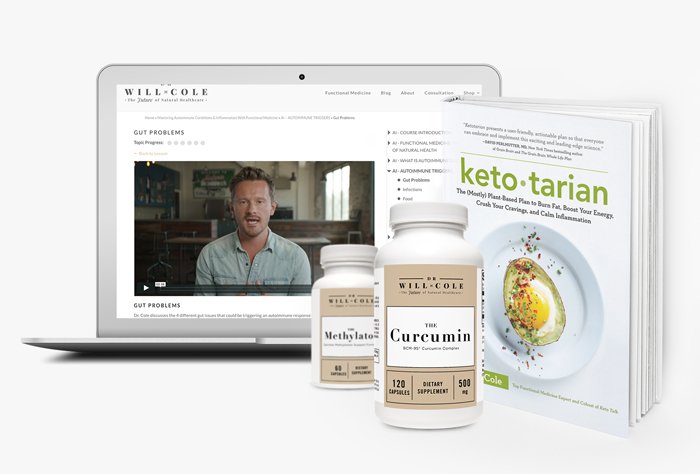Pharmaceutical Overload: Why You Might Not Need That Prescription

There is no question that the pharmaceutical industry makes a profit. According to the World Health Organization, the global pharmaceuticals market is worth $300 billion annually, and that figure is expected to rise to $400 billion within the next three years. But what happens when medical care clashes with profit?
The WHO agrees that the current pharmaceutical system has “an inherent conflict of interest between the legitimate business goals of manufacturers and the social, medical, and economic needs of providers and the public to select and use drugs in the most rational way.” In other words, while you may very well need medication, it’s also quite possible (and quite common) that the medication you are taking is more about profit for the manufacturer than real help for you.
Unfortunately, those trained in the mainstream medicine model have learned that health care is largely about diagnosing a disease and matching that diagnosis with a corresponding medication. This may be a win-win for pharmaceutical companies and for-profit medical care companies (like for-profit hospitals), but what about the patients? This medicinal matching game leaves many frustrated when nothing changes beyond a growing list of prescription drugs.
While medicine can be life-saving, when it comes to the majority of chronic diseases, like heart disease and diabetes, or autoimmune conditions like Hashimoto’s, there’s quite a lot you can do naturally to support optimal health that doesn’t involve a prescription. As a functional medicine practitioner, my days are spent speaking with sick people who are on multiple medications whose side effects only make them feel sicker. What kind of system is this, when doctors prescribe medications, and more medications to ease the side effects of the first medication, while never addressing the primary cause of the disease in the first place?
Article continues below
Make Your Life a Cleanse
SUBSCRIBER-ONLY GUIDES FOR GUT HEALTH, VIBRANT ENERGY, HEALTHY FOOD & CLEAN ALCOHOL
Get FREE access to these + giveaways, recipes, & discount codes in personal emails from Dr. Will Cole.
It amazes me how many people don’t’ know the side effects of the drugs they take on a daily basis. When they find a practitioner who works with them to reverse the underlying dysfunction, the overwhelming majority of these people are able to reverse their disease processes, and their prescribing doctors are able to reduce or even eliminate their need for medications.
Does this scenario apply to you? While I would never recommend quitting any prescribed medication without medical supervision, in my practice, these are some of the most common conditions for which I see medications prescribed, even though lifestyle changes may be just as if not more effective at resolving symptoms and opening the door for the body to heal better:
1. High cholesterol
If your cholesterol level climbs up over 200, chances are your doctor will prescribe a statin drug for you. One of the largest classes of medications, statins are now (disturbingly) being prescribed to children, and Pfizer even makes a chewable form of it’s profitable drug, Lipitor! I have written in the past about how total cholesterol by itself is a poor predictor for heart attack and stroke risk. On the contrary, medical literature has actually shown (1) that low cholesterol may increase the likelihood of all-cause mortality.
One study (2) actually found an association between higher cholesterol levels and a reduction in cardiovascular disease. More accurate indicators for increased risk of heart attack and stroke are high triglycerides and HbA1C, low HDL, high inflammatory markers like CRP and homocysteine, and high level small-dense LDL particles. So perhaps high cholesterol isn’t such a health emergency after all? Talk to your doctor about whether you really need a statin, as these drugs have many uncomfortable, even painful side effects, like bruising and muscle pain.
2. Diabetes
There are plenty of medications to manage diabetes, like Januvia, Byetta, and Bydureon, but they all belong to classes of drugs that have been linked (3) to different types of cancer. There is no question that high blood sugar is not good for your health, so it’s understandable that both doctors and patients may panic and rush to start medication to bring those number down. However, this approach does not get to the reason why blood sugar is high, and we know for sure that dietary changes can often reduce blood sugar, reversing diabetes and getting people back to health. Lifestyle changes may allow diabetics to eventually reduce or even get off these medications, when the body is in better shape to keep its blood sugar in a healthy, non-diabetic range.
3. Acid reflux
Tens of millions of American say they experience acid reflux at least monthly and often daily. To avoid the uncomfortable symptoms of this problem, many people take proton pump inhibitor (PPI) medications. I see it daily. While these drugs do relieve symptoms, they rarely get to the cause of the problem. Why do you have acid reflux in the first place?
Irritable bowel syndrome and gastroespophageal reflux disease (GERD) have been linked in the research to underlying conditions that could be resolved with natural medicines and lifestyle changes, yet people can be on acid reflux drugs for years without changing anything else, despite PPI drugs being linked to an increase risk of heart disease (4) and cancer. (5) Wouldn’t it be better to eliminate the reflux where it starts by modifying diet and activity level?
4. High blood pressure
While people with high blood pressure are often given a class of medications known as calcium-channel blockers to reduce their risk of heart attack, these drugs have been linked (according to research (6) published in the Journal of American Medical Association) to an increased risk of breast cancer in post-menopausal women. An underlying source of inflammation, poor diet, or nutrient deficiency (not to mention chronic stress) could all be causes of high blood pressure and should be investigated to see if these may be a factor and whether blood pressure could be lowered more naturally.
5. Nerve pain
Many people suffer nerve pain for a host of reasons, often linked to a chronic disease such as diabetes or fibromyalgia. The medications typically prescribed for neuropathy (nerve pain) and fibromyalgia pain, such as Lyrica and Gabapentin, have been linked to suicidal thoughts and actions as well as weight gain and many other symptoms. Instead, it is important to get to the root cause of the pain and attack the problem there, so that long-term use of these medications is minimized.
Again, I’m not advocating for anyone to wantonly go off their medications unsupervised. Instead, I’m encouraging you to have an open discussion with your doctor, beyond the talking points from the pharmaceutical reps. What is causing your condition? How could you address it more naturally? And are some of your uncomfortable symptoms actually side effects of your medications? I also encourage you to ask the question: “Why do I have this problem in the first place?” Hopefully, more people speaking up about this issue will promote a change in the system and at the very least, spark people to take responsibility for their lives, make more informed decisions, and take action to regain their health and free themselves from unnecessary prescription medications that only profit others.
As one of the first functional medicine telehealth clinics in the world, we provide webcam health consultations for people around the globe.
Photo: Stocksy
Start Your Health Journey Today
FUNCTIONAL MEDICINE CONSULTATIONS FOR PEOPLE AROUND THE WORLD
References:
- Prof Dr. Irwin J Schatz, MD, Prof Kamal Masaki, MD, Katsuhiko Yano, MD, Randi CHen, MS, Prof Beatriz L Rodriguez, MD, Prof J David Curb, MD, Cholesterol and all-cause mortality in elderly people from the Honolulu Heart Program: a cohort study The Lancet Volume 358, Issue 9279, P351-355, August 04, 2001. doi:10.1016/S0140-6736(01)05553-2
- AKIRA OKAYAMA, HIROTSUGU UESHIMA, MICHAEL G MARMOT, MASAKAZU NAKAMURA, YOSHIKUNI KITA, MASANOBU YAMAKAWA, Changes in Total Serum Cholesterol and Other Risk Factors for Cardiovascular Disease in Japan, 1980–1989, International Journal of Epidemiology, Volume 22, Issue 6, December 1993, Pages 1038–1047, https://doi.org/10.1093/ije/22.6.1038
- Diabetes Drugs May Be Linked To Pancreatic Cancer NHS https://www.nhs.uk/news/diabetes/diabetes-drugs-may-be-linked-to-pancreatic-cancer/
- Methodist Hospital, Houston. (2013, July 10). Acid reflux drug may cause heart disease, study suggests. ScienceDaily. Retrieved June 2, 2020 from www.sciencedaily.com/releases/2013/07/130710114225.htm
- Nason KS, Wichienkuer PP, Awais O, et al. Gastroesophageal reflux disease symptom severity, proton pump inhibitor use, and esophageal carcinogenesis. Arch Surg. 2011;146(7):851‐858. doi:10.1001/archsurg.2011.174
Shop This Article
Purchase personally curated supplements
and Dr. Will Cole’s books!

The information on this website has not been evaluated by the Food & Drug Administration or any other medical body. We do not aim to diagnose, treat, cure or prevent any illness or disease. Information is shared for educational purposes only. You must consult your doctor before acting on any content on this website, especially if you are pregnant, nursing, taking medication, or have a medical condition.
Our articles may include products that have been independently chosen and recommended by Dr. Will Cole and our editors. If you purchase something mentioned in this article, we may earn a small commission.

BY DR. WILL COLE
Dr. Will Cole, DNM, IFMCP, DC is a leading functional medicine expert who consults people around the globe, starting one of the first functional medicine telehealth centers in the world. Named one of the top 50 functional and integrative doctors in the nation, Dr. Will Cole provides a functional medicine approach for thyroid issues, autoimmune conditions, hormonal imbalances, digestive disorders, and brain problems. He is also the host of the popular The Art of Being Well podcast and the New York Times bestselling author of Intuitive Fasting, Ketotarian, Gut Feelings, and The Inflammation Spectrum.

Gut Feelings
Healing The Shame-Fueled Relationship
Between What You Eat And How You Feel
